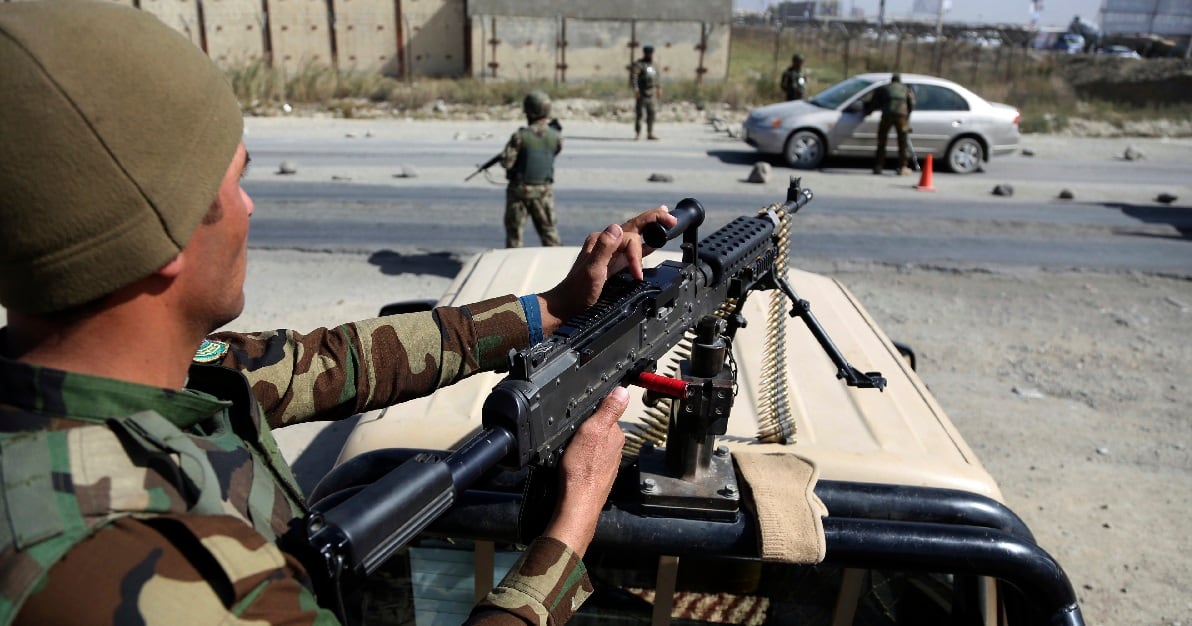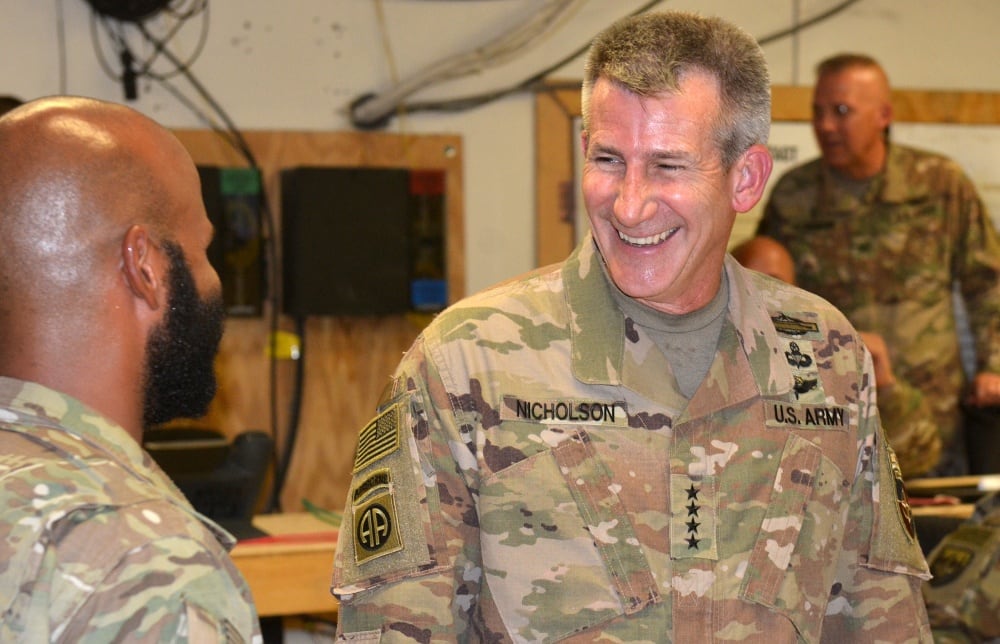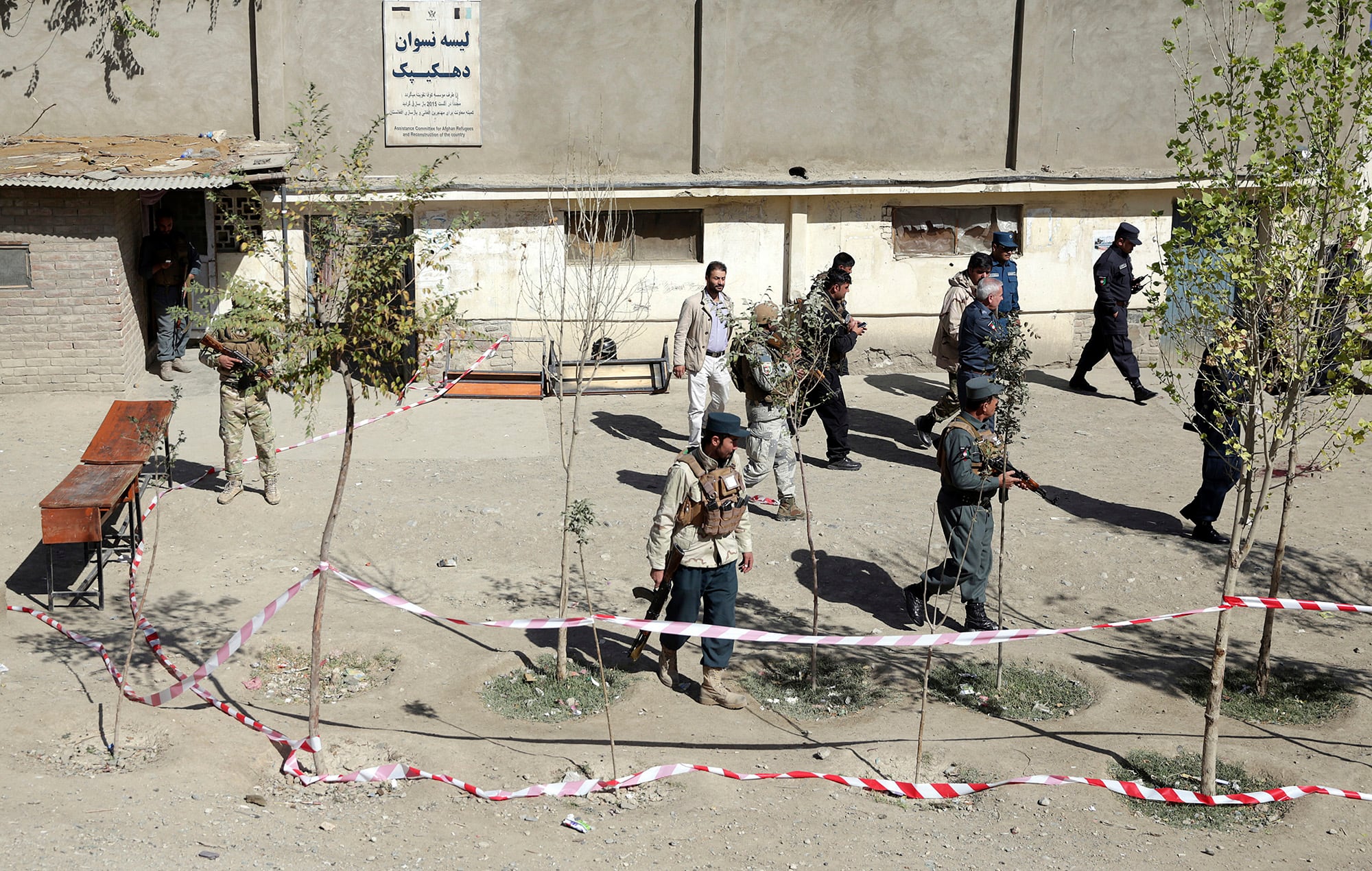WASHINGTON — The assassination of Afghan leaders in Kandahar province won’t lessen U.S. support for the war in Afghanistan or deter local security forces in the fight against the Taliban, the top U.S. military commander in the Middle East said Saturday.
Gen. Joseph Votel said the U.S. was "pretty confident that the Afghans will be able to maintain the situation down" in Kandahar.
The Taliban said Thursday’s attack, which killed an influential police chief, targeted the top U.S. commander in Afghanistan. But U.S. military officials have said Army Gen. Scott Miller was not in the line of fire, and he escaped unharmed.
RELATED

The attack just before Saturday's parliamentary elections, where violence marred some balloting, was as a stark reminder of the formidable task the Trump administration faces as it tries to extricate America from its longest war.
Votel expressed confidence in the ability of the Afghan forces to provide security for the election and into the future.
"My assessment is the Afghans are resilient to this," he said. "I don't consider it to be something that will change the security situation."
The Kandahar shooting, he said, won't diminish "our will or on us going forward."
Votel's comment to reporters traveling with him at Al Udeid Air Base in Qatar echoed the sentiment expressed by U.S. Defense Secretary Jim Mattis on Friday.
"We remain absolutely committed to an Afghan-led Afghan reconciliation," Mattis told reporters Friday at an Asian security conference in Singapore. "Right now, we're going toward the election and we will continue to defend the Afghan people."
But the timing of the attack makes U.S. goals seem ever more distant.
It came just a week after reported U.S. back-channel talks with the Taliban and as the administration steps up efforts to kick-start peace negotiations between the militant group and the Afghan government to end the war, now entering its 18th year.
There are about 14,000 U.S. troops in Afghanistan on a mission to train and assist Afghan government forces in taking the fight to the Taliban, which controls or contests close to half the districts in the country. Violence is rising, claiming the lives of hundreds of civilians every month. There have been seven U.S. combat deaths so far this year.
U.S. Army Col. David Butler, who was near where the shooting occurred after Miller met Afghan officials, disputed the Taliban and said the target was Kandahar police chief Abdul Raziq, one of the three officials killed. But even their claim that they were going after Miller cast doubt on whether the militants are indeed willing to negotiate.
The recent appointment of former U.S. ambassador to Afghanistan Zalmay Khalilzad as envoy for Afghan reconciliation was intended to energize the U.S. peace effort and coax the Taliban into direct talks with the government of Ashraf Ghani.
The Taliban said its political representatives in Qatar met with Khalilzad a week ago, during his first multination trip since he took up his new post. The State Department did not confirm the Oct. 12 meeting, but did not deny it either, which was widely viewed in Washington as tacit acknowledgement it happened. A similar scenario played out in July, when the Taliban reported a meeting with the senior U.S. diplomat for South and Central Asia, Alice Wells.
RELATED

The risk of such back-channel talks is that could alienate the Afghan government. The Taliban claimed the two sides discussed finding a way to withdraw foreign forces from Afghanistan — an issue that the Afghan government would demand a say in as it would be key to any peace settlement. Because U.S. officials haven't confirmed that the meeting happened, they have not been able to publicly deny the Taliban's account of the meeting.
The Taliban have condemned the elections, calling them a U.S.-manipulated event to further their hold on the country, and pledged to disrupt them.
The election for the 249-seat lower house is already three years overdue. The U.S. committed nearly $80 million in aid for U.N.-led support of Afghan election authorities.
Voting in southern Kandahar province was been postponed for a week because of Thursday's attack and wasn't taking place at all in Ghazni because of insecurity there.
Baldor reported from Doha, Qatar. Associated Press writers Deb Riechmann in Washington and Robert Burns in Singapore contributed to this report.





